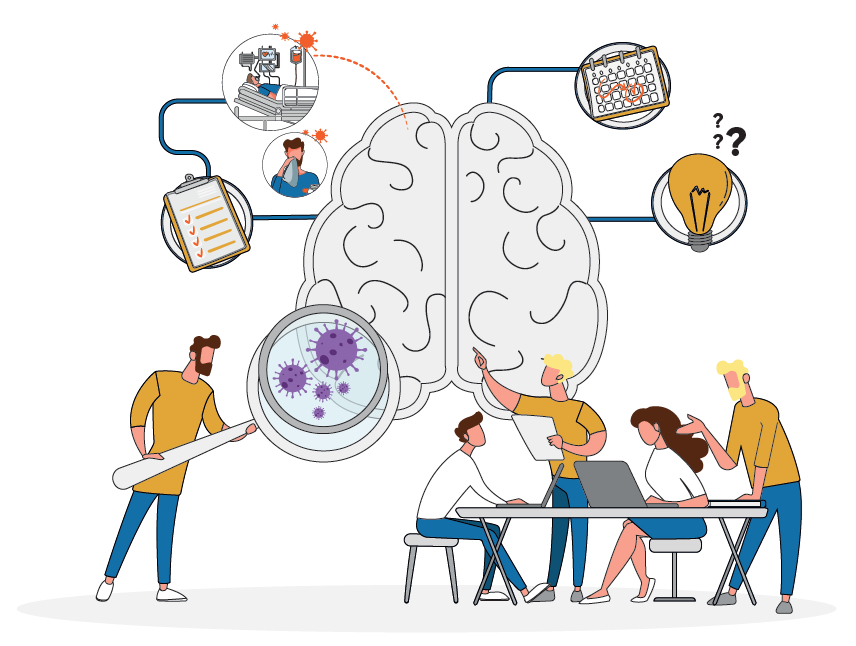Research Focus : TRAJECTORY Project

TRAJECTORY Project
Longitudinal evolution of cognitive functions following SARS-CoV-2 infection: factors of chronicization
Purpose of the project :
In the COVID-COG project, Professor Péron's team initially highlighted the neuropsychological repercussions at 6-9 months and 12-15 months after a COVID-19 infection, in both hospitalised and non-hospitalised patients. The persistence of these symptoms has recently been defined by the WHO as a post-COVID condition.
The present project, entitled TRAJECTORY, aims to develop a longitudinal follow-up of the 121 people initially assessed at 6-9 months and 12-15 months after their COVID-19 infection, by repeating the same neuropsychological, psychiatric and brain imaging assessments at 4 and 6 years after their primary infection. In addition, venous blood samples will be taken at 4- and 6-years post-infection to determine immune and cognitive relationships. This first part of the project will enable us to assess the cognitive and neurological trajectories of individuals from 6-9 months to 6 years after infection with COVID-19.
This project also plans to expand the COVID-COG cohort, which currently comprises 121 participants. The second part of this project is to increase the number of participants and extend this neuropsychological follow-up to a cohort of around 300 people assessed at 4 and 6 years after their primary infection. These new participants will undergo the same comprehensive neuropsychological assessments as in the follow-up to the COVID-COG project.
Finally, the overall objective of this project is to gain a better understanding of the persistence of cognitive symptoms 4 to 6 years after primary infection with COVID-19 and to better define the post-COVID condition through the prism of variations in immunity and disruption of brain function.
This research program will open up new research avenues for the understanding of the factors of chronicization and enable patients with this syndrome to receive more targeted support.
This project, supported by the Swiss National Science Foundation, will run from 2023 to 2027.
January 18, 2024
News
